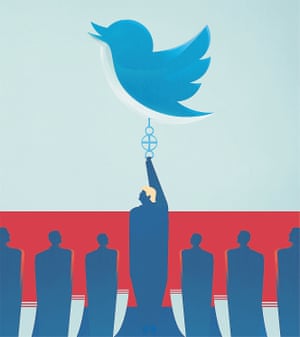
Another article that deserves your attention is "The 2016 Presidential Campaign – a News Event That’s Hard to Miss" by Jeffrey Gottfried and his colleagues. The article makes an analysis of what sources Americans use to get information about the 2016 presidential campaign. The analysis employs recent researches and statistics.The authors show the percentage of US adults interested in elections, which is 91%. Furthermore, they divide this 91 % intocategories, based on what type of source adults uses. The analysis goes even further, the article shows what percentage of adults use different amount of sources for getting information about US presidential elections. This article in collaboration with content analysis would be able to roughly predict the future president of the US. Moreover, it gives a deeper understanding of what type of media is the most influential for certain age groups. The results of this analysis are truly intriguing and surprising.
HERE IS THE LINK: http://www.journalism.org/2016/02/04/the-2016-presidential-campaign-a-news-event-thats-hard-to-miss/



